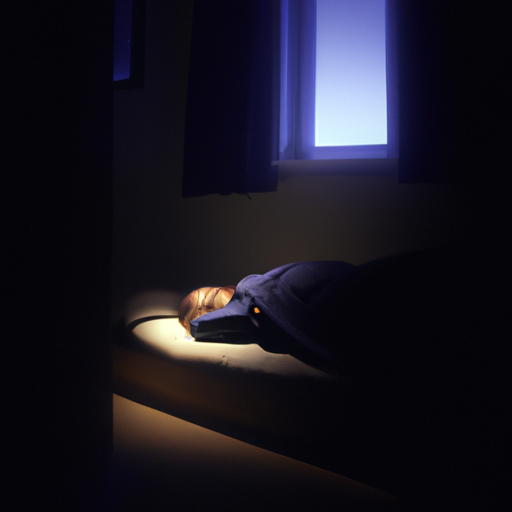Modern life has disrupted our natural sleep patterns in unprecedented ways. Learn evidence-based strategies to improve your sleep quality and duration for optimal physical and mental health. Discover how small lifestyle changes can transform your nights and revolutionize your days.

In our fast-paced modern world, quality sleep has become increasingly elusive, yet it remains one of the most crucial pillars of good health. Understanding and optimizing our sleep patterns can dramatically improve every aspect of our lives, from physical health to emotional wellbeing and cognitive performance.
The Biology of Sleep
Sleep is far from a passive state - it's a complex biological process during which our bodies perform essential maintenance and restoration functions. During sleep, our brains clear out toxic waste products that accumulate during waking hours, consolidate memories, and process emotional experiences. Our bodies repair tissue damage, strengthen immune functions, and regulate important hormones that control everything from appetite to stress response.
The sleep cycle consists of four distinct stages, including REM (Rapid Eye Movement) sleep and three stages of non-REM sleep. Each stage serves unique biological purposes, and completing full cycles is crucial for restorative sleep. A typical night should include 4-6 complete sleep cycles, with each cycle lasting approximately 90 minutes.
The Impact of Sleep Deprivation
Chronic sleep deprivation has far-reaching consequences that extend well beyond feeling tired. Research has linked insufficient sleep to increased risk of numerous health conditions, including cardiovascular disease, diabetes, obesity, and compromised immune function. Mental health is equally affected, with sleep deprivation contributing to anxiety, depression, and reduced cognitive performance.
Poor sleep affects decision-making abilities, emotional regulation, and reaction times, making it a significant public safety concern. Studies have shown that driving while sleep-deprived can be as dangerous as driving under the influence of alcohol.
Optimizing Your Sleep Environment
Creating the ideal sleep environment is crucial for quality rest. Temperature plays a vital role - most people sleep best in a room kept between 60-67°F (15-19°C). Complete darkness is essential for proper melatonin production, so consider using blackout curtains or a sleep mask. Noise control is equally important - while complete silence works best for some, others benefit from consistent white noise to mask disruptive sounds.
The quality of your mattress and pillows significantly impacts sleep quality. Your sleeping surface should provide proper support while maintaining comfort, and pillows should keep your neck aligned with your spine. Consider replacing mattresses every 7-10 years and pillows every 1-2 years to maintain optimal support.
Developing a Sleep-Promoting Routine
Establishing a consistent sleep schedule is perhaps the most powerful way to improve sleep quality. Going to bed and waking up at the same times, even on weekends, helps regulate your body's internal clock or circadian rhythm. This consistency makes it easier to fall asleep and wake up naturally.
A relaxing bedtime routine signals to your body that it's time to wind down. This might include gentle stretching, reading, meditation, or a warm bath. Avoid screens for at least an hour before bed, as the blue light they emit can suppress melatonin production and make it harder to fall asleep.
Lifestyle Factors Affecting Sleep
Diet and exercise habits significantly impact sleep quality. Regular physical activity promotes better sleep, but timing matters - intense exercise too close to bedtime can be stimulating rather than relaxing. Aim to complete vigorous workouts at least 3 hours before bedtime.
What you eat and drink affects sleep quality as well. Avoid large meals close to bedtime, as digestion can interfere with sleep. Caffeine has a half-life of about 5 hours, so consider cutting off caffeine intake by early afternoon. While alcohol might make you feel sleepy initially, it disrupts sleep cycles and reduces sleep quality.
Managing Stress for Better Sleep
Stress and anxiety are common causes of sleep problems. Developing effective stress management techniques can significantly improve sleep quality. Practices like mindfulness meditation, deep breathing exercises, or journaling can help quiet a racing mind and prepare for rest.
If racing thoughts keep you awake, try keeping a notepad by your bed to jot down concerns or to-do items that surface at bedtime. This can help clear your mind and allow you to relax into sleep.
When to Seek Professional Help
If sleep problems persist despite implementing good sleep hygiene practices, consider consulting a healthcare provider or sleep specialist. Sleep disorders like sleep apnea, insomnia, or restless leg syndrome require professional diagnosis and treatment. Don't hesitate to seek help - quality sleep is too important to compromise.
Conclusion
Investing time and effort in improving your sleep quality pays dividends in every aspect of health and well-being. By understanding sleep's crucial role in health and implementing evidence-based strategies to optimize it, you can transform your nights and enhance your days. Remember that sustainable changes often start small - begin with one or two modifications to your sleep routine and build from there. Your body and mind will thank you with improved health, clearer thinking, and better emotional regulation.



